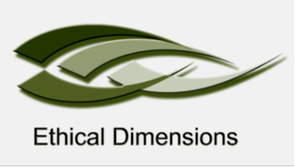By: Kathy Ginn
L.M.T., NCTMB, NCBTMB Approved Provider
I hope this time finds you well and your practice thriving. I have been offering ethics education since 1999. The fundamental theme of my ethics curriculum is Ethics as Right Use of Power. I find the subject of power to be an intriguing, broad and deep exploration; an exploration that is life - long. The following article invites each reader to slow down and reflect on the words written.
Life is about relationships, and all relationships involve a kind of connectedness around energy forces. We exist because we are part of one great energy field. The roots of power are embedded in infancy. It is in the developmental years we learn about self, our relationship to the world and the dynamics of control, boundaries, worth, belonging and power. We begin to define ourselves and the world we live in. This beginning development translates into our relationships as we journey through life. And this same self who was born into infancy is the same self who shows up in the therapeutic relationship. The ways in which we connect, relate, and use our power are influenced by those early years. Exploring those early years, to include our belief systems, attitudes, and our wounds opens the door to exploring the following question; what is my relationship with power and how does this part of me show up in the therapeutic relationship? The Dalai Lama states; we must be on the journey of repairing our own hearts and actions, before we can offer healing to others.
Often in my Ethics class I begin by asking two questions; “how many of you want power in the therapeutic relationship and what do you know about your power?” This is a question that is not often asked in everyday life, thus the response is usually one of curiosity or is based on a strong belief. Some of the common responses are; I don’t want power, power is bad, I am equal with my client, or simply I don’t know. Thus the exploration begins! The power differential is inherent in any therapeutic relationship. The power differential is amplified by the physical aspects of our work. Power is the ability to act or to have an effect. Influence is how we interact with others to invite change and have an effect. Role Power is the increased power that accompanies a professional role. This is what creates the power differential within the therapeutic relationship. How we influence our clients and how we are influenced by our clients will be a force for either good or harm. All directed power represents a force of some kind, and thus the question; will our power be a force that empowers or disempowers those involved? Can we learn to use our power with skill and wisdom? Right Use of Power promotes safe and trustworthy relations with our clients. Following are just a few ethical concerns we explore in class:
- How do I share insights with my clients without imposing personal values and beliefs?
- Do I listen actively and how do I know?
- Do I offer informed consent that is both written and verbal and delivered with clarity?
- When is therapist self-disclosure in service to the therapeutic relationship?
- When is it important to discourage dual role relationships?
- What makes a difficult client?
- How do I model self- care?
- Do I acknowledge my strengths and weaknesses?
- How do I teach my client to be my client?
- What do I know about my presence?
The dynamics of the power differential within the therapeutic relationship are often quite complex. It is important we explore our blind spots, along with understanding that good intentions are often not enough. How we use our professional & role power is a necessary exploration. This is the heart & soul of ethics education.
May we continue to Learn, Grow and Live in Peace!
Kathy
Kathy’s company; Ethical Dimensions provides services in continuing education, individual and group mentoring, Spa consulting and practice development. You may contact her by visiting her website at www.ethicaldimensions.com

 RSS Feed
RSS Feed